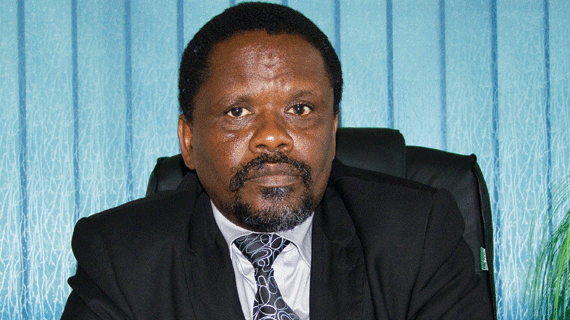
ONE’S language defines and identifies one’s roots, the background. Ancient conquerors were notorious for changing their captives’ language, culture and lifestyle.
A good biblical example is found in Daniel 1. When King Nebuchadnezzar brought Jewish captives to Babylon he gave the following instruction to Ashphnaz his chief official:- “Choose from the Jewish young captives, those that are handsome, intelligent, well trained, quick to learn, with no physical defects, fit to serve royalty.”
Critical to King Nebuchadnezzar, was to select the cream of the captives, the young who would be future leaders. The training period was three years. In addition, these captive trainees would be given the royal diet and refreshments.
The conspiracy presented goes beyond what the eye could perceive. One needs to read between the lines of this seemingly favourable arrangement for the captive boys.
As if this was not enough, the boys’ names were changed, Daniel became Belteshazar, Hananiah — Shadreck, Mishael — Mishack and Azariah – Abednigo.
The intention of the whole plot was to totally brainwash the captive boys. With their names changed, new diet introduced, a change of mind set would ensue. It goes without saying that these captives were also expected to talk the captors’ language.
The change of names and diet was in preparation of an education system that would then entrench in these boys a new identity — a good example, before independence, one would ask a child “who do you like to be or be like”, in most cases the answer would be, “I want to be or like ikhiwa” a Ndebele word for white person. A minority of about 4 000 whites had instilled their dominance over the whole of the black population.
It is against this background that the issue of language will be looked into. Last week or so newspapers were abuzz with the issues of language in schools in Matabeleland.
- Chamisa under fire over US$120K donation
- Mavhunga puts DeMbare into Chibuku quarterfinals
- Pension funds bet on Cabora Bassa oilfields
- Councils defy govt fire tender directive
Keep Reading
The Senior Minister in the President’s Office, Simon Khaya Moyo, was quoted as having summoned the Education minister to explain why non-Ndebele speaking teachers were deployed to schools in Matabeleland.
Whether or not this realisation is just a vote-buying gimmick ahead of the December 2014 congress is not the intention of this discourse at least for now.
The Education ministry in response to Khaya Moyo’s concern, advised that the deployment of teachers was the role of the commission charged with that duty. The explanation, not convincing at all, it is just like when the Prosecutor-General advised the country that there were no laws to deal with corruption.
Any manufacturer or service provider who is serious about business will beforehand send marketers to acquire information of the customers’ needs and aspirations before coming up with a given product.
The consumer determines the quality and packaging of the product that he/she would be prepared to pay for.
Services are an intangible product which must be delivered in person by the provider. Issues like mode of communication and body language are critical in service delivery.
The formative years of childhood are critical in instilling a value system, a proper language and importantly, an identity with one’s roots. It is alleged that a crèche teacher at one police camp in Bulawayo was dismissed for teaching kids in Ndebele as this was viewed as corrupting the kids’ minds.
In contrast, the Education ministry sees nothing wrong about damaging minds of other people’s children, distorting their culture and identity.
It is reported that one teacher gave an assignment to a Ndebele class to write about “i-deal” when the intention was that the class wrote about idili a Ndebele word for a feast.
Make your guess on how confused and perplexed the children were in trying to figure out what the teacher really meant.
Given the status quo, somebody may conclude that this article is tribalist. Far from being so. If anything, it is a constitutional right in terms of Section 63 of the Constitution of Zimbabwe for every person to use the language of their choice and to participate in the cultural life of choice.
In developed countries, when one goes for further studies, the first month is spent learning the host country’s language as this enables effective communication. Equally, in our situation there is need to compulsorily learn the language of the host region, in as far as other jobs are concerned.
However, this cannot apply to teachers, especially at crèche and primary school levels. Young kids need proper pronunciation of words, a good grasp of the value system, culture, personal and clan identity.
Let us celebrate our unity in diversity. Yearn for a rainbow nation that is blind to colour, race, tribe or dialect.
Moses Tsimukeni Mahlangu is the general-secretary for Zimbabwe Urban Councils Workers’ Union. He is a labour consultant and arbitrator. Feedback: E-mail: [email protected]










